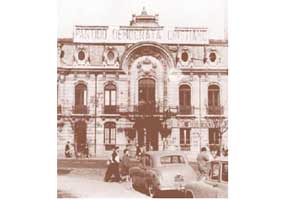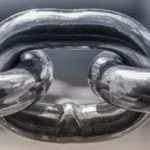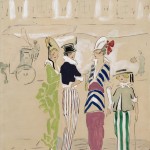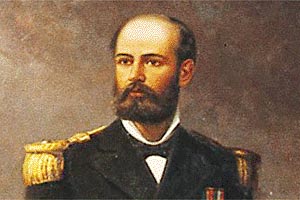After three straight radical rulers and the logical wearing down of the governing coalition, citizens demanded a change in the country’s administration. Two presidents followed that declared being politically autonomous before reaching power.
14 years had passed since Pedro Aguirre Cerda had arrived to power, enough time for suspicions and mistrust to arise in the political and social arenas. Amidst this scenario, the force of Carlos Ibañez del Campo reappeared, who was considered the “general of hope” that would put an end to all the vices instilled in the political class.
The return of Ibañez
Ibañez counted with the initial support of the different political sectors of the country, which enthusiastically celebrated his return to La Moneda on November 4th, 1952. However, despite his independence, he needed the support of Congress to undertake different initiatives, many of which were entrapped because they counted with no political base.
Among the projects that did come (to be fruitful) to pass was the creation of the Banco del Estado de Chile (Bank of the State of Chile) thanks to the merger of the Caja Nacional de Ahorros (National Savings Fund), the Caja de Credito Hipotecario (Mortgage Fund), the Caja de Credito Agrario (Agrarian Fund) and the Instituto de Credito Industrial (Industrial Credit Institute). The Mining Ministry, the Instituto de Seguros del Estado (State Insurance Institute), the Corporacion de Vivienda (Housing Corporation) (Corvi) and the Superintendecia de Educacion (Education Superintendence) were also created during this period.
In politics, he managed to reform the electoral system through four important initiatives. The new law established a single identity card, printed and handed out by the Electoral Service and it also set as a postulation requisite that the party alliances were national and made known 20 days before the voting took place. Bribery was also penalized, and during the last year of his government, 1958, the Defense of Democracy law was abolished, retuning legal status to the Communist party and its members.
Carlos Ibañez del Campo would finish the last days of his rule with scarce public support. Two important political forces would oppose each other in the presidential struggle: the Frente de Accion Popular (Popular Action Front), whose candidate was socialist Salvador Allende, and the Frente Democratico (Democratic Front), represented by Jorge Alessandri Rodriguez, son of Arturo Alessandri Palma.
A new independent
Although Jorge Alessandru Rodriguez got the most votes in the presidential elections of 1958 with 32.2%, ratification from Congress was necessary in order for him to assume as president of the country.
Alessandri Rodriguez received an unstable country. His predecessor had not managed to reduce high inflation, so one of his first duties was to bring back financial tranquility for the nation. The president readjusted expenses and the salaries of the public sector and encouraged a policy of social growth, which consisted of constructing homes, public works and increasing industrial production.
Another important measure that would help production and encouraging agriculture was added to urban development. In 1962, Law 15,020 was promulgated, which set the foundations for the later agrarian reform. This is how the Corporacion de Reforma Agraria (Agrarian Reform Corporation) (Cora) and the Instituto de Desarrollo Agropecuario (Agropecuary Development Institute) (Indap) were created, the first institutions that took on the subject of redistributing land and increasing farming zones throughout the territory.
But the financial bonanza wouldn’t last, and during Alessandri Rodriguez’ government’s last years economy would begin to tumble once again. Meanwhile, social mobilizations became frequent.
Amidst this scenario, political forces began to resettle faced with the elections of 1964: the Democratic Front emerged (made up by radicals, liberals and conservatives); the Christian Democrat party was founded in 1957 and the Popular Action Front (FRAP), which brought together socialists and communists, was gaining more and more members.





